"I have never hesitated from challenging surgeries," Viktor Fanarjyan asserts as he continues the medical traditions of his family.
INTERVIEW
Viktor is part of the fourth-generation of doctors in the Fanarjyan medical lineage. His great-grandfather, Academician Bartholomew Fanarjyan, founded the Institute of Oncology. Viktor’s grandfather, Academician Viktor Fanarjyan, dedicated many years to the Institute of Physiology, serving as its director for over 30 years and as vice-president of the National Academy of Sciences for about 12 years. Moreover, his father, Professor Ruben Fanarjyan, is the founder and head of the Department of Neurosurgery at YSMU. It's no coincidence that Viktor Fanarjyan also chose the path of medicine.
After graduating from Pushkin High School in 2002, he enrolled in Yerevan State Medical University, from which he graduated in 2009. From 2009 to 2012, he pursued a clinical residency in Urology at the National Institute of Health. From 2002 to 2003, he worked in the emergency department of Erebuni Medical Center. He served as a clinical aide at Mikaelyan Institute of Surgery, from 2005 to 2006. Additionally, from 2009 to 2013, he worked at Mikaelyan Institute of Surgery, and simultaneously - from 2012 to 2013 - he practiced at Nairii Medical Center in Yeghvard. From 2013 to 2019, he worked at both Erebuni and Nairi medical centers as a urologist. In 2017, he earned his PhD, author of numerous medical articles. Since 2009, he has been a member of the Armenian and European Urological associations.
Overall, Viktor has over ten years of medical and surgical experience. "Working while studying, studying while working, this is like a principle for me, because there is a constant need for self- improvement. The rapidly developing trends of the world require you to be constantly aware of new medical advancements. ," mentioned Ph.D. Viktor Fanarjyan in a conversation with Past.am.
Viktor regards every difficulty, challenge, or problem as a phase of life to be overcome with dignity. Viewing each dilemma as an obstacle to overcome, he remembers that being a doctor is a mission, which instills confidence in him. "A human being is not an algorithmic machine, and any minor wronged movement of the surgeon may be fatal. ‘Is medicine art or science?’ The surgeon is the artist of the patient’s canvas. Yet medicine is also science that requires the surgeon’s ability to operate properly," he adds.
In his practice, Viktor has performed surgeries for the first time in the Republic of Armenia, including procedures related to urolithiasis and various surgical methods available worldwide. Details of these operations are documented on the official website of the Erebuni Medical Center. "At critical moments, the surgeon should be able to quickly decide which optimal solution to choose in order to avoid complications. I have never shied away from complex operations; the word 'no' was simply not an option , unless, of course, we took into consideration the expected result and the anticipated complications.
Such complex operations allow the doctor to gain experience, confidence, and the ability to address the patient's needs. This quality of not rejecting patients was instilled in Viktor during his clinical residency. The foundation of trust is education, facilitated by experiences gained through months-long training abroad, participation in international conferences, and work experience acquired during years at the Erebuni Medical Center.
Dr. Fanarjyan's goal is to establish a medical facility and educational center that matches the standards of leading global centers. Priority will be given to individuals from vulnerable and socially disadvantaged backgrounds, with medical care provided free of charge and in accordance with international standards. Simultaneously, foreigners will receive education at the center. Despite the presence of medical insurance, social packages, and state programs in Armenia, patients often encounter obstacles at some stage and may not receive free medical care as a result.
"Due to recent events, I will have to settle in the United States soon," says Viktor. He is confident that one day he will apply the international experience gained abroad to the healthcare system, leaving his mark on medicine in the same way that the Fanarjyan dynasty did years ago and keeps doing so.
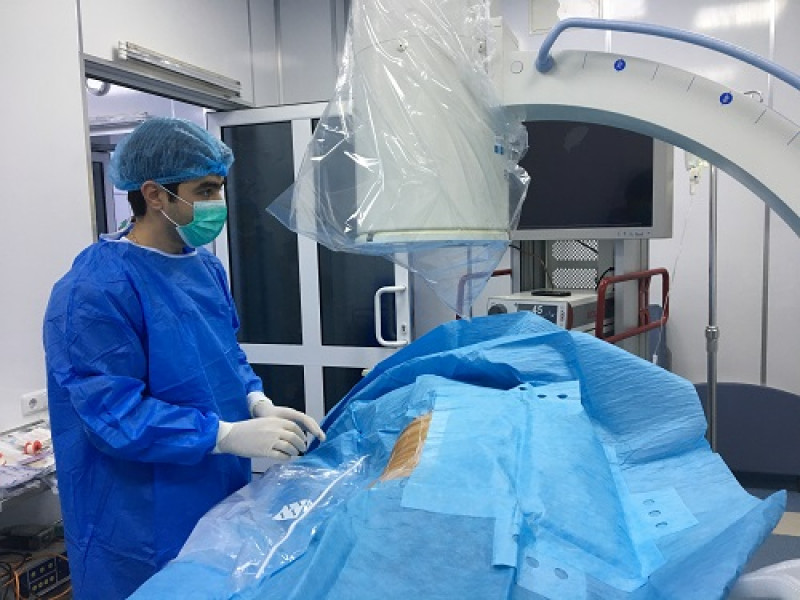
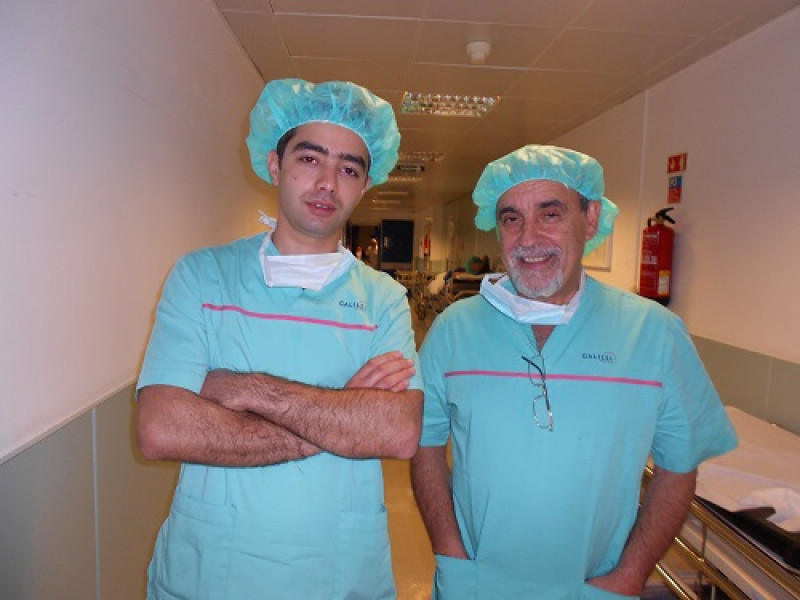
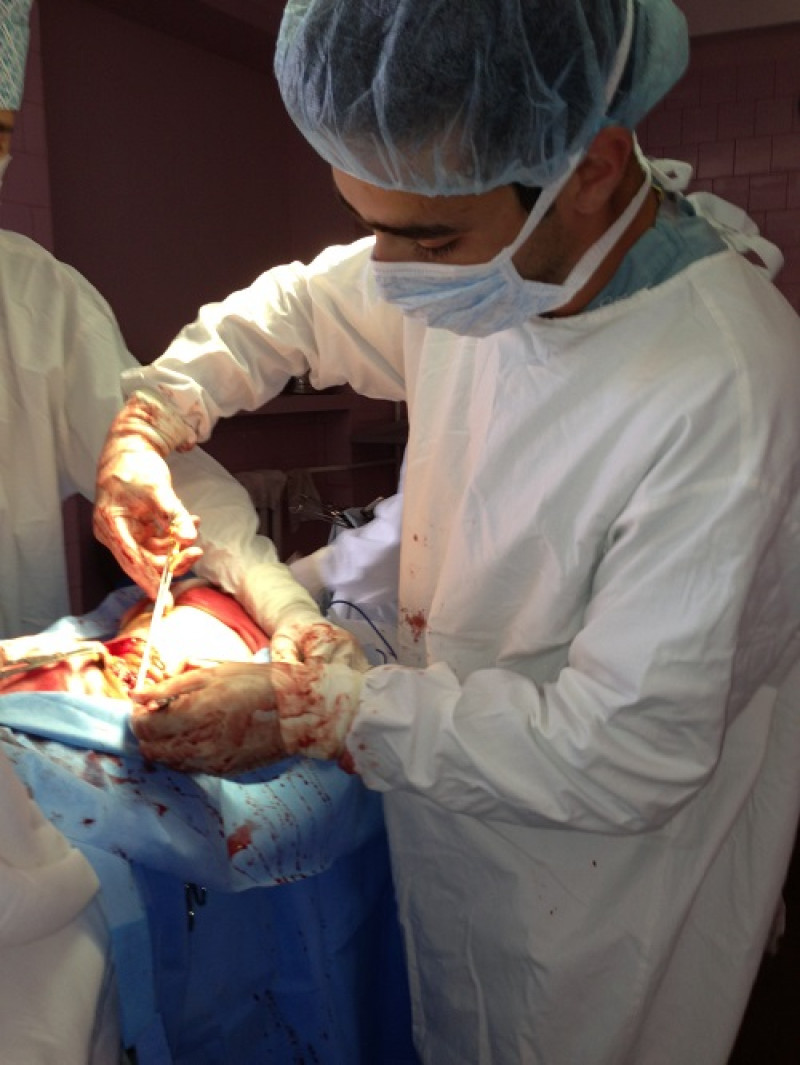
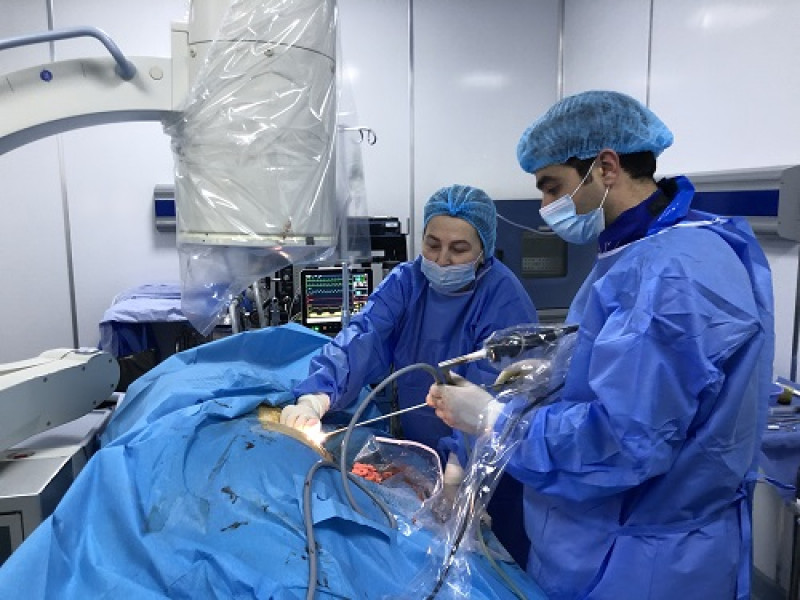
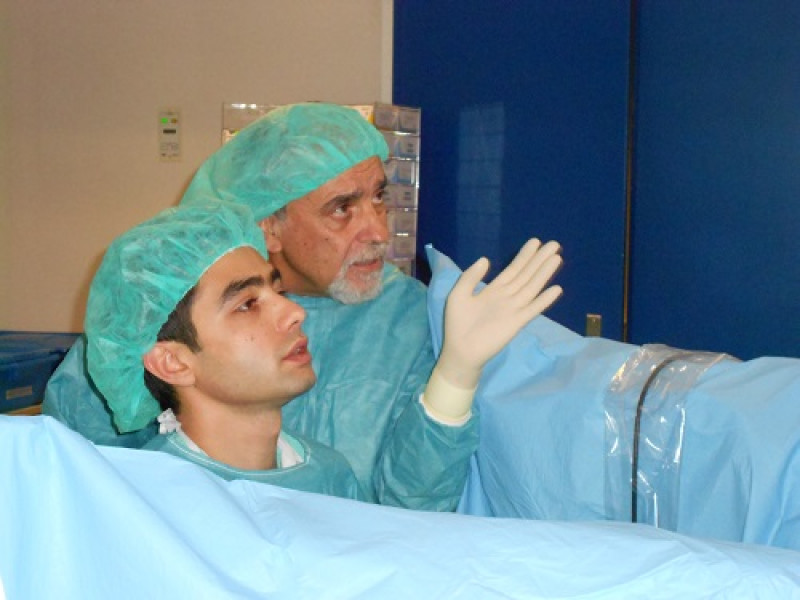

 The Winners of the Third Round of the Junius Competition Have Been Announced
The Winners of the Third Round of the Junius Competition Have Been Announced What to gift men on January 28: Idram&IDBank
What to gift men on January 28: Idram&IDBank Idram Conducted a Financial Literacy Class for Roboton Participants
Idram Conducted a Financial Literacy Class for Roboton Participants Regarding Payments for Viva Armenia Services via Idram
Regarding Payments for Viva Armenia Services via Idram Vahe Hakobyan Is a Political Prisoner: Past.am
Vahe Hakobyan Is a Political Prisoner: Past.am Up to 2% Cashback with IDBank Mastercard and ARCA Card
Up to 2% Cashback with IDBank Mastercard and ARCA Card Up to 2% cashback, free Mastercard and free ArCa card when you join IDSalary
Up to 2% cashback, free Mastercard and free ArCa card when you join IDSalary AraratBank Sums Up “You Choose the Destination” Campaign Implemented in Partnership with Mastercard
AraratBank Sums Up “You Choose the Destination” Campaign Implemented in Partnership with Mastercard Book by March 31 and get 15% off your FINTECH360 ticket
Book by March 31 and get 15% off your FINTECH360 ticket
 Ucom Launches Fixed Network Services in Zovuni
Ucom Launches Fixed Network Services in Zovuni
 The FINTECH360 conference will be held in Yerevan from April 27 to 29
The FINTECH360 conference will be held in Yerevan from April 27 to 29
 AraratBank Partners as General Sponsor of 4090 Charity Foundation's Five-Year Milestone Event
AraratBank Partners as General Sponsor of 4090 Charity Foundation's Five-Year Milestone Event AraratBank Takes the Lead in Brand PR Performance
AraratBank Takes the Lead in Brand PR Performance  Unforgettable Moments and a Profitable Offer at Myler. Idram&IDBank
Unforgettable Moments and a Profitable Offer at Myler. Idram&IDBank
 Idram Summarizes 2025
Idram Summarizes 2025 The Power of One Dram Donates 5,788,105 AMD to the City of Smile Charity Foundation
The Power of One Dram Donates 5,788,105 AMD to the City of Smile Charity Foundation
 Converse Bank Successfully Completes Globbing Bond Placement
Converse Bank Successfully Completes Globbing Bond Placement
 Why the Pressure on Vahe Hakobyan Continues
Why the Pressure on Vahe Hakobyan Continues
 Ucom Introduces Hecttor AI to Improve Call Center Communications
Ucom Introduces Hecttor AI to Improve Call Center Communications
 The Armenian Apostolic Church: Refutation of a False Premise
The Armenian Apostolic Church: Refutation of a False Premise
 Vahe Hakobyan Is Being Politically Persecuted
Vahe Hakobyan Is Being Politically Persecuted Idram employees are the Secret Santa Claus for the students of the Orran Day Care Center
Idram employees are the Secret Santa Claus for the students of the Orran Day Care Center AraratBank Donates AMD 8 million to the Reconstruction of the Spandaryan Canal
AraratBank Donates AMD 8 million to the Reconstruction of the Spandaryan Canal Unibank Launches Gift Cards
Unibank Launches Gift Cards
 New Education Platforms through Cooperation between AraratBank and Aren Mehrabyan Foundation
New Education Platforms through Cooperation between AraratBank and Aren Mehrabyan Foundation Tech Innovator and Winemaker Adam Kablanian Joins the Board of Trustees of the “Music for Future” Foundation
Tech Innovator and Winemaker Adam Kablanian Joins the Board of Trustees of the “Music for Future” Foundation Ucom Reopens Sales and Service Center on Tigran Mets Avenue
Ucom Reopens Sales and Service Center on Tigran Mets Avenue  AraratBank Receives Visa Trusted Partnership Award 2025
AraratBank Receives Visa Trusted Partnership Award 2025  Secret Santa at idplus: Anonymous Gift Cards
Secret Santa at idplus: Anonymous Gift Cards We condemn the unlawful actions by Armenia’s Gov. against the Armenian Apostolic Church. Jan Figel
We condemn the unlawful actions by Armenia’s Gov. against the Armenian Apostolic Church. Jan Figel
 Free Style issues Armenia’s first corporate bonds in the fashion retail sector, placed by Cube Invest
Free Style issues Armenia’s first corporate bonds in the fashion retail sector, placed by Cube Invest Unibank Completed the Placement of Its Third Issuance of Perpetual Bonds
Unibank Completed the Placement of Its Third Issuance of Perpetual Bonds Scholarship for 100 Artsakh Students as Part of IDBank’s “Side by Side” Program
Scholarship for 100 Artsakh Students as Part of IDBank’s “Side by Side” Program
 The results of the second Junius financial literacy competition have been summarized
The results of the second Junius financial literacy competition have been summarized
 From idea to implementation: Ameriabank Presents the Programs Implemented under My Ameria, My Armenia CSR Campaign
From idea to implementation: Ameriabank Presents the Programs Implemented under My Ameria, My Armenia CSR Campaign
 Ucom and SunChild Launch the “Smart Birdwatching” Educational Program
Ucom and SunChild Launch the “Smart Birdwatching” Educational Program
 AraratBank Supports Digitization of "Karin" Scientific Center Archive
AraratBank Supports Digitization of "Karin" Scientific Center Archive Welcome to the ID booth: Big Christmas Market
Welcome to the ID booth: Big Christmas Market Widest 5G Coverage, the Launch of the Uplay Platform, and the Integration of Cerillion: Ucom Summarizes 2025
Widest 5G Coverage, the Launch of the Uplay Platform, and the Integration of Cerillion: Ucom Summarizes 2025
 Ucom and Armflix Present “13 Seconds” at KinoPark
Ucom and Armflix Present “13 Seconds” at KinoPark
 How to Choose a Career Path and What Skills are Considered Crucial: AraratBank on the GoTeach Platform
How to Choose a Career Path and What Skills are Considered Crucial: AraratBank on the GoTeach Platform
 Unibank Issues a New Tranche of Perpetual Bonds with 13.75% Coupon
Unibank Issues a New Tranche of Perpetual Bonds with 13.75% Coupon
 Unibank Became a Member of BAFT
Unibank Became a Member of BAFT The December beneficiary of “The Power of One Dram” initiative is the “City of Smile” Foundation
The December beneficiary of “The Power of One Dram” initiative is the “City of Smile” Foundation
 EBRD lends US$ 40 million to Acba bank for youth-led firms in Armenia
EBRD lends US$ 40 million to Acba bank for youth-led firms in Armenia Heading Into 2026 at Ucom Speed։ New Year Offers Are Now Live
Heading Into 2026 at Ucom Speed։ New Year Offers Are Now Live
 Bvik and Idram Standing by Young Readers
Bvik and Idram Standing by Young Readers IDBank participated in the conference dedicated to the 10th anniversary of the Armenian Institute of Directors
IDBank participated in the conference dedicated to the 10th anniversary of the Armenian Institute of Directors AxelMondrian Wins Three Major International Awards for Branding, PR and Film Production in 2025
AxelMondrian Wins Three Major International Awards for Branding, PR and Film Production in 2025 Ucom Promotes Space Engineering Education
Ucom Promotes Space Engineering Education






